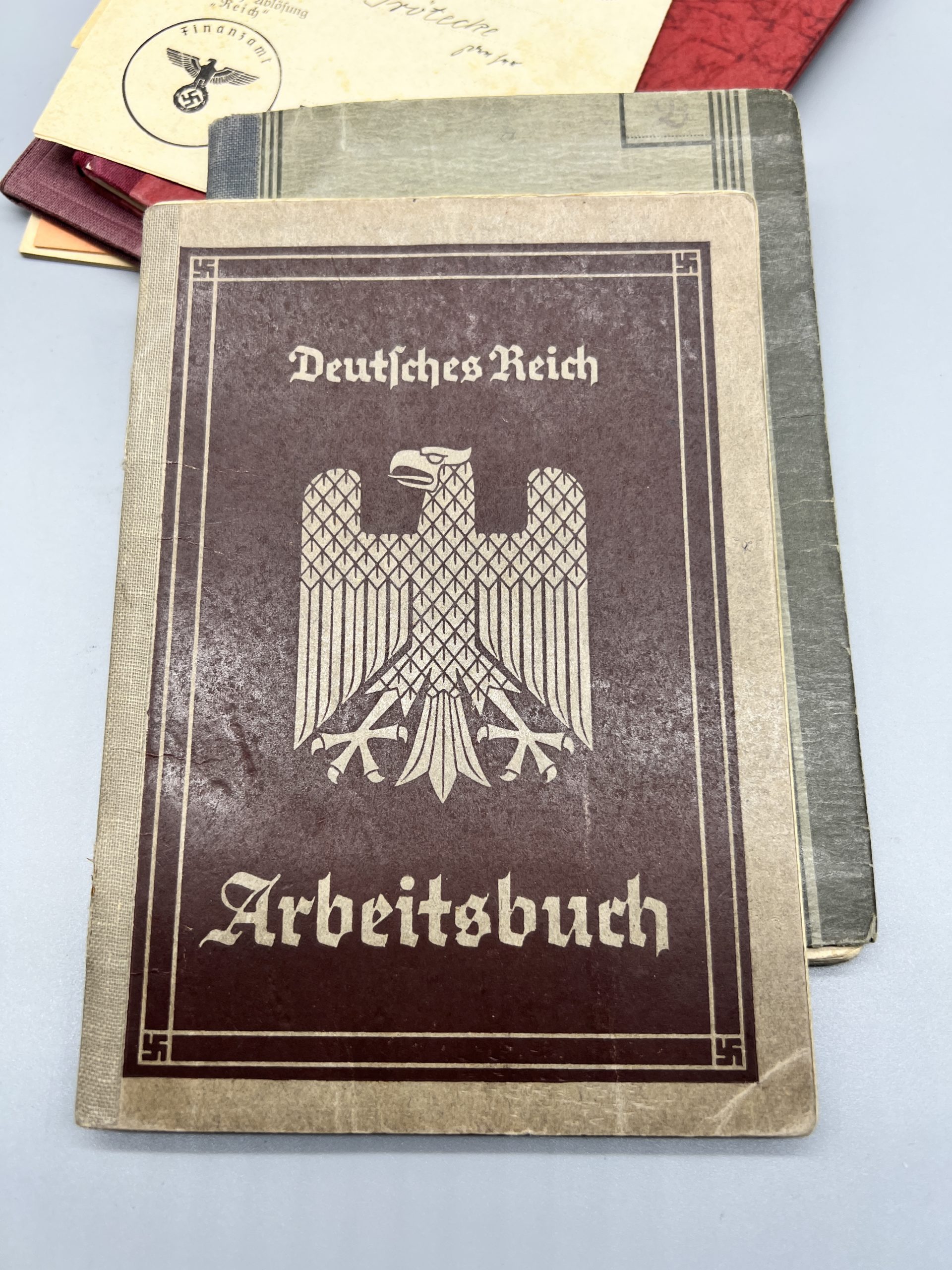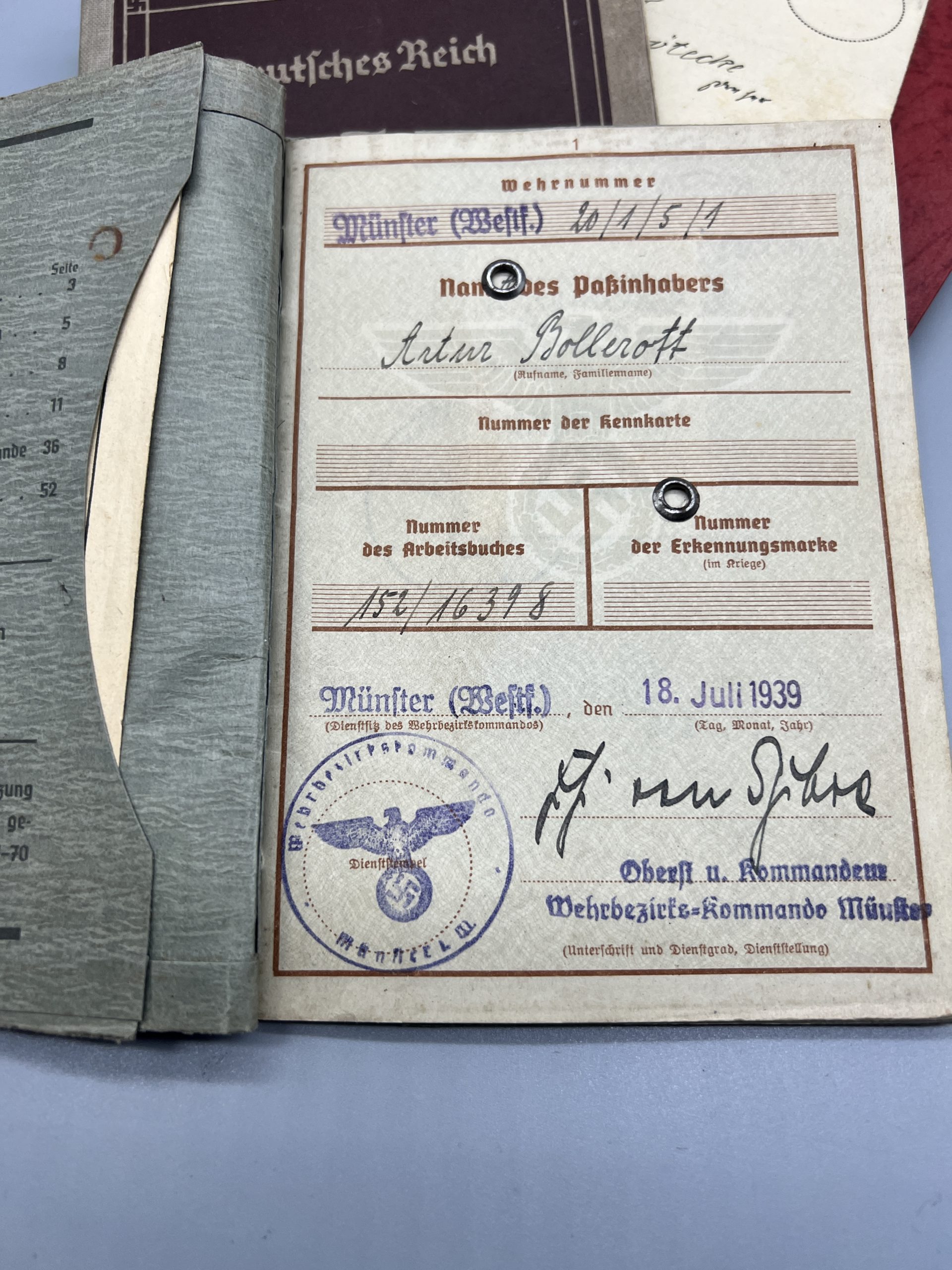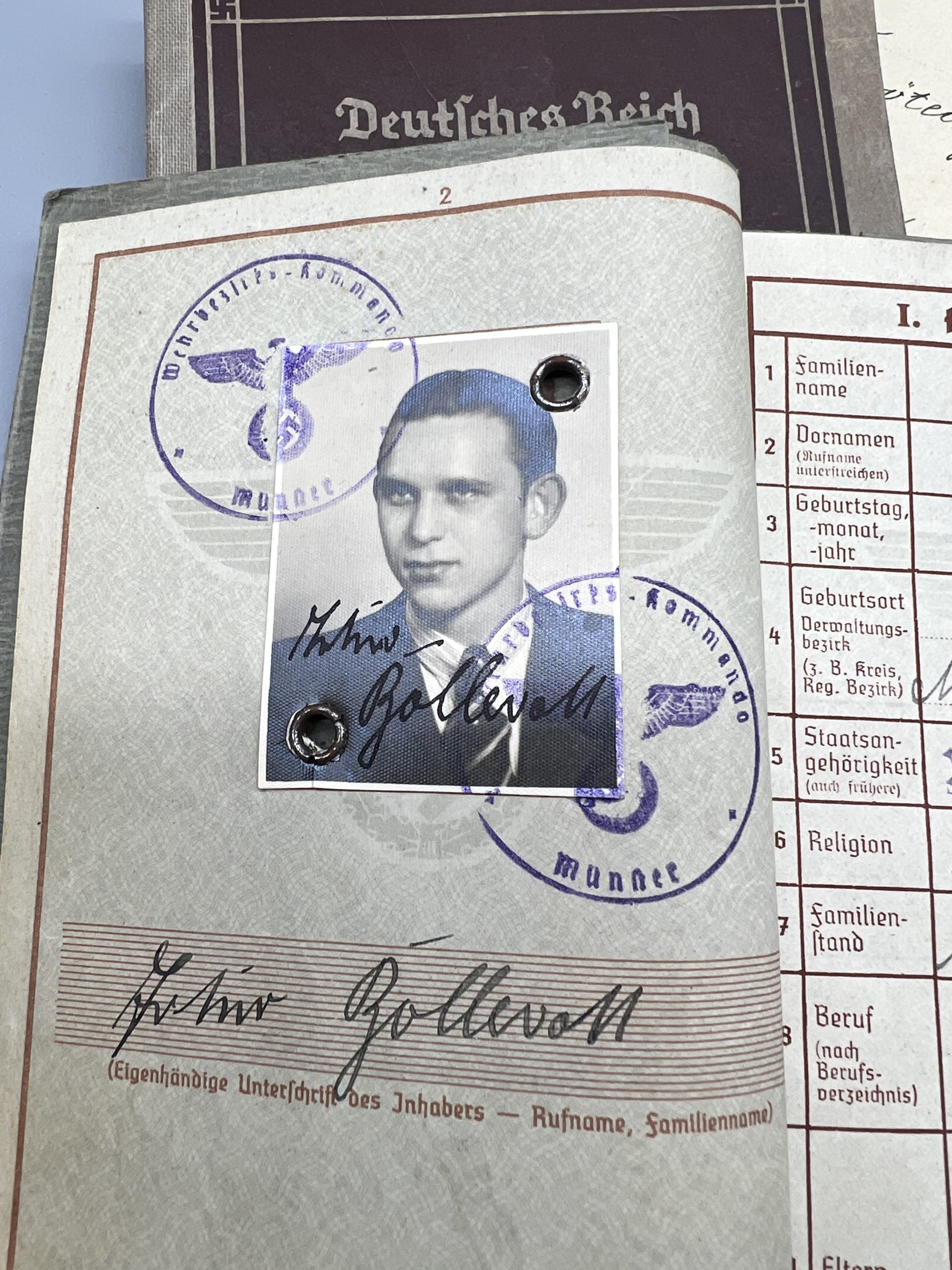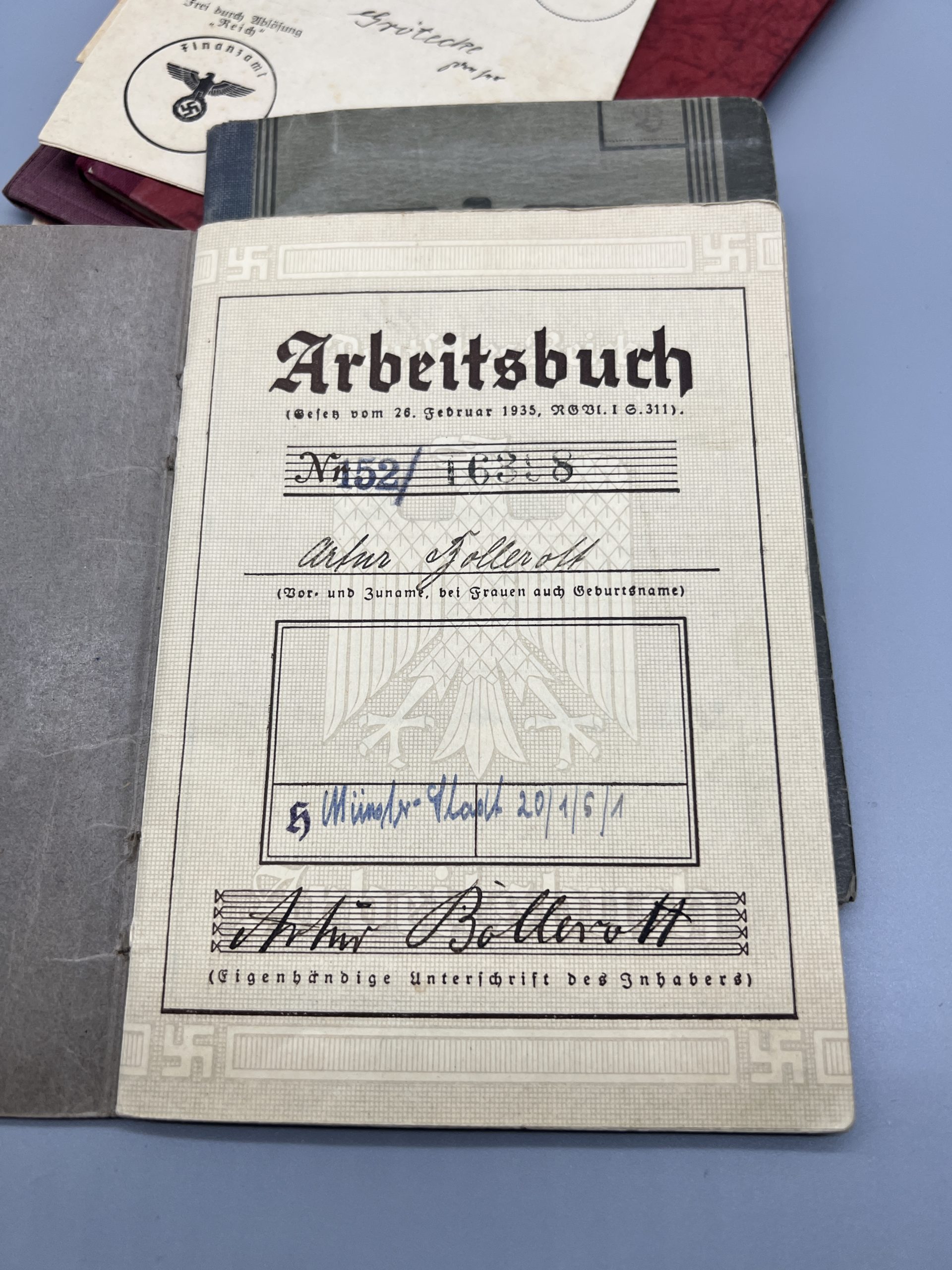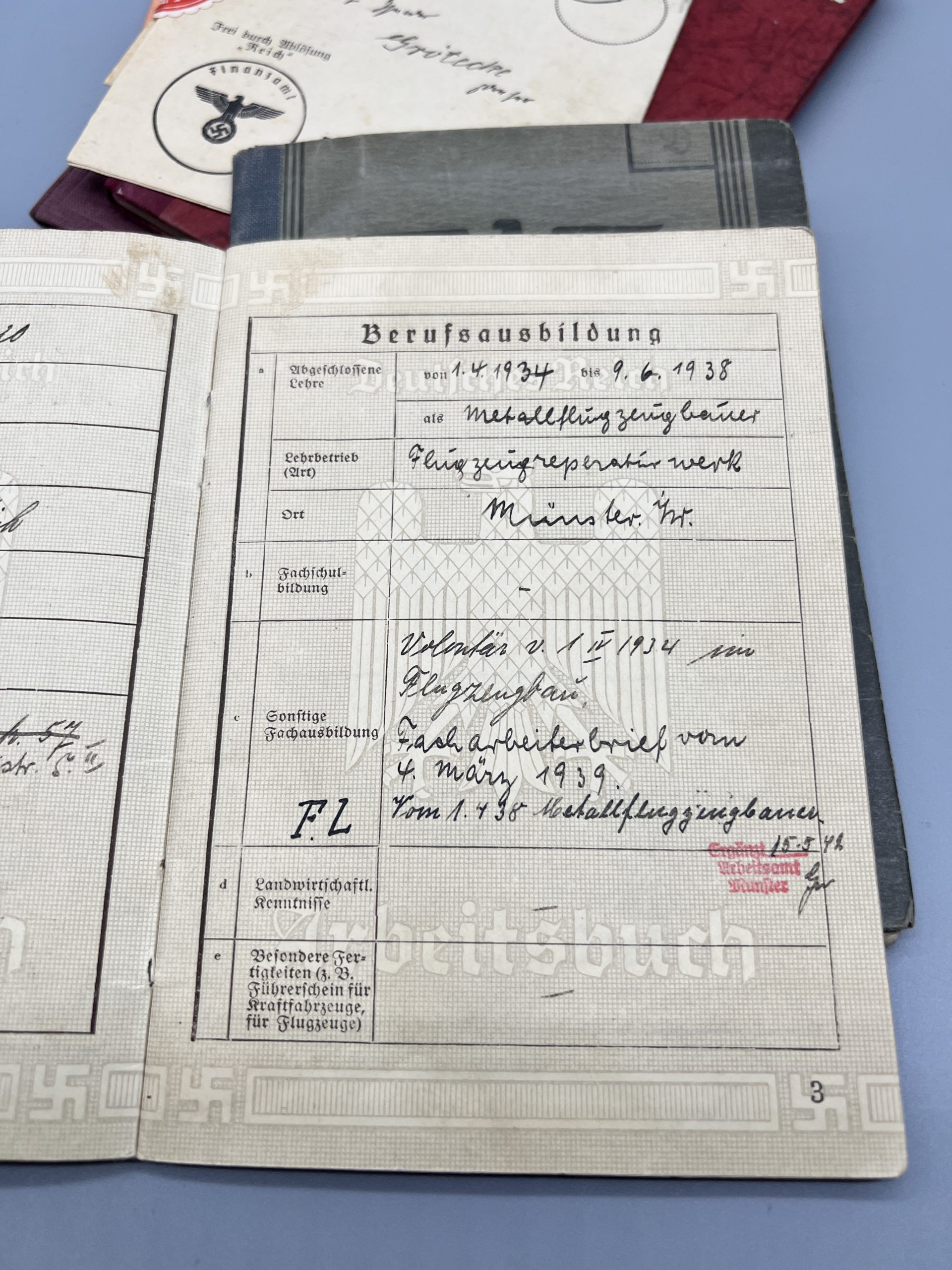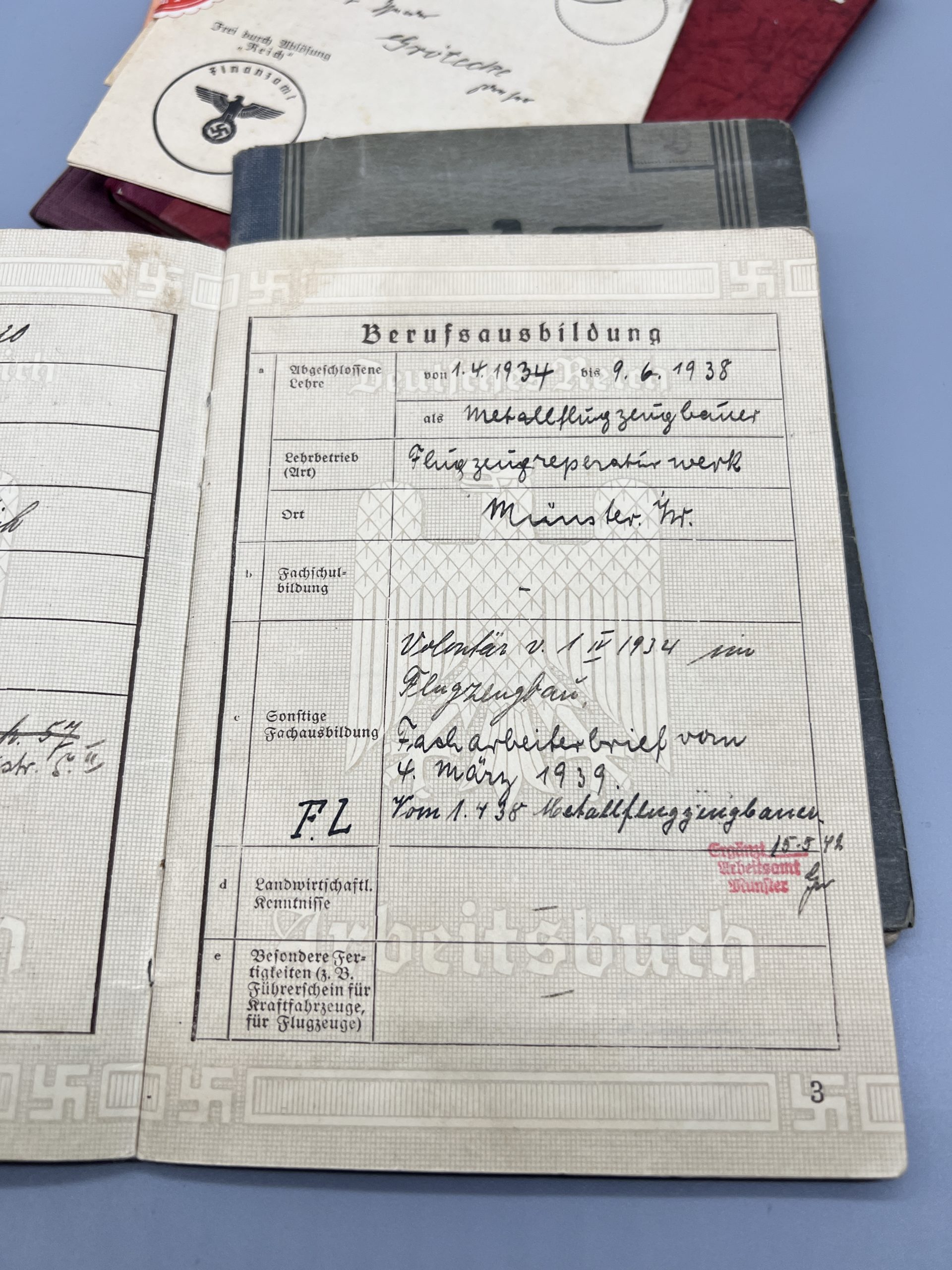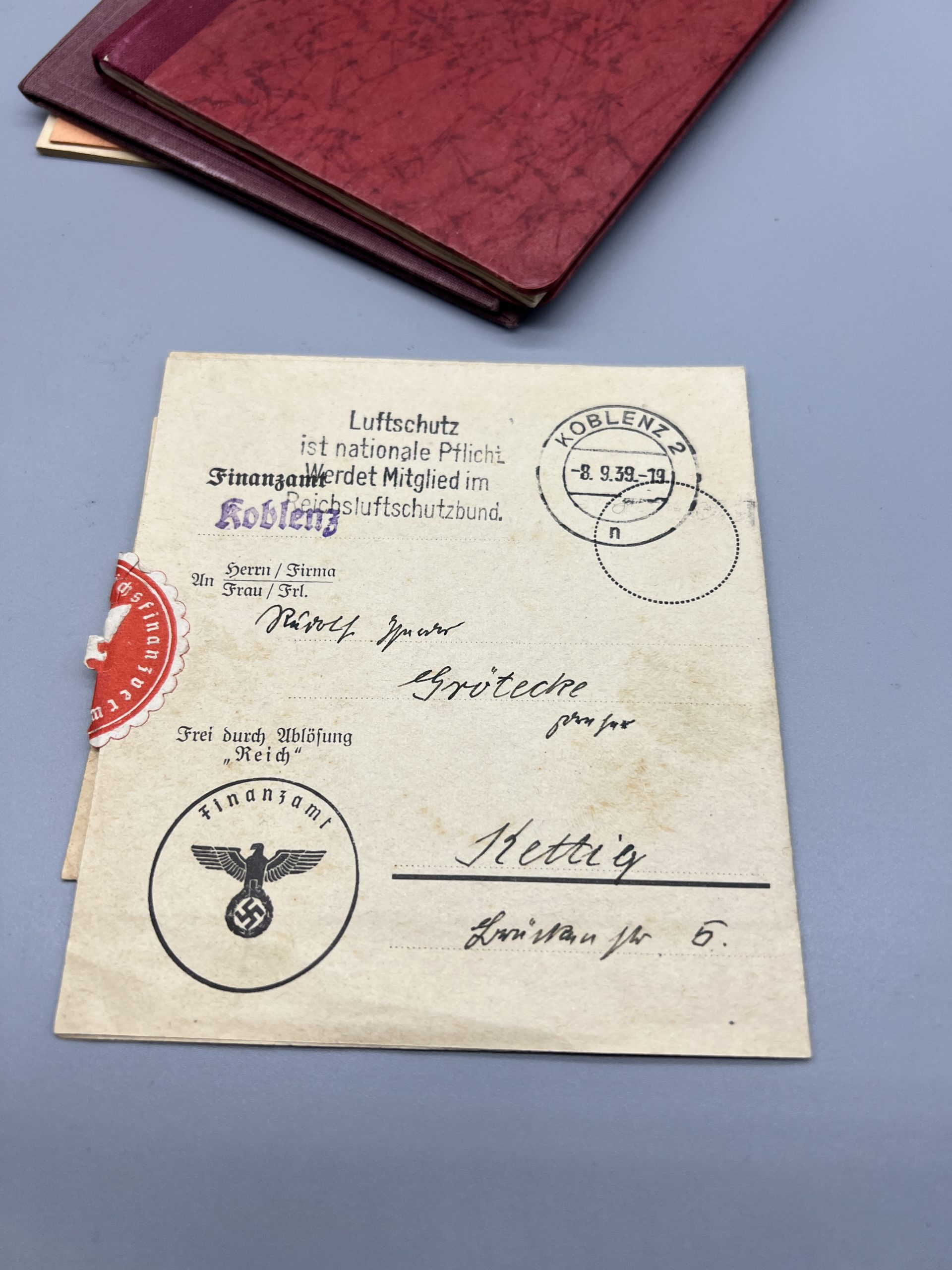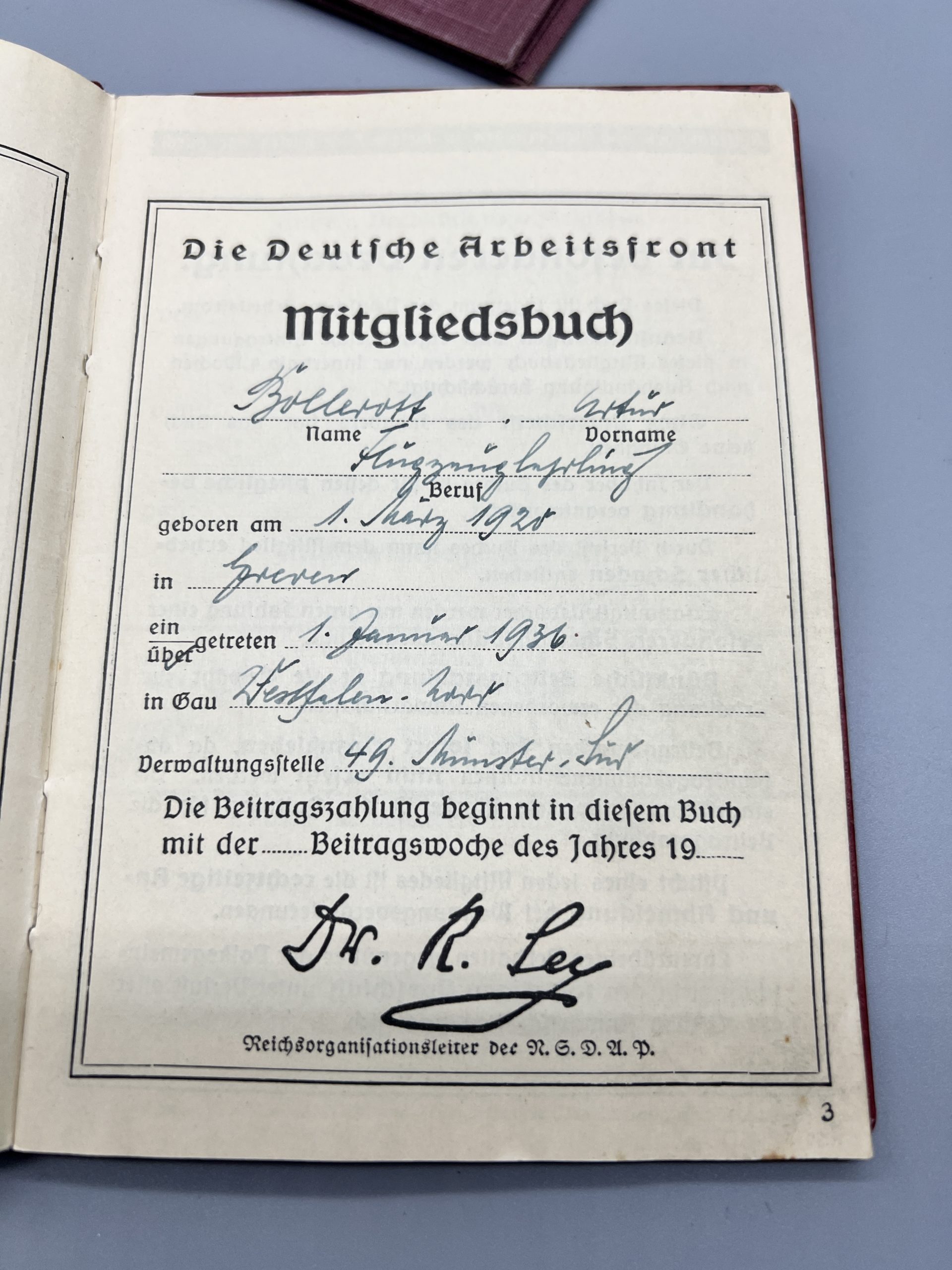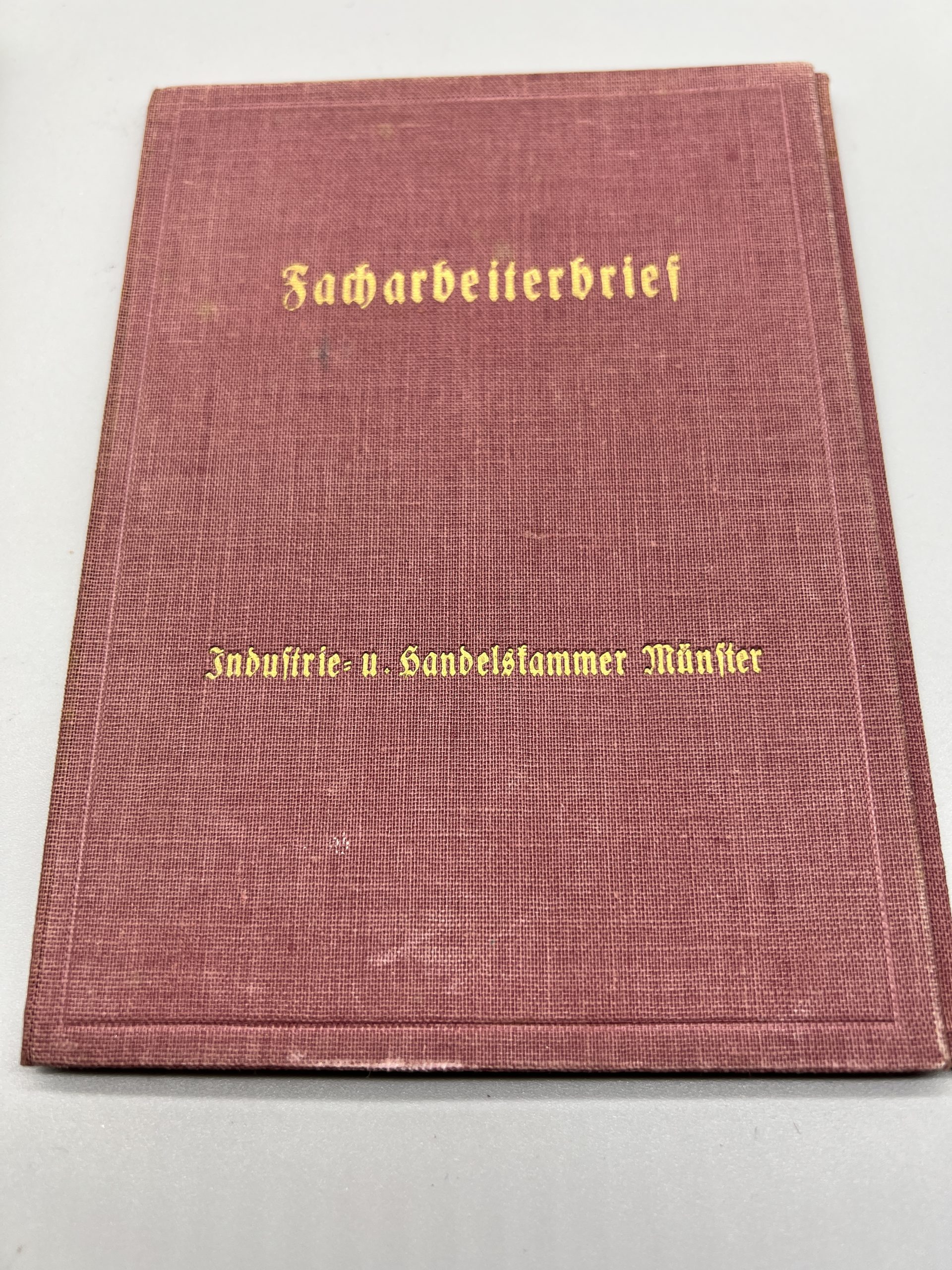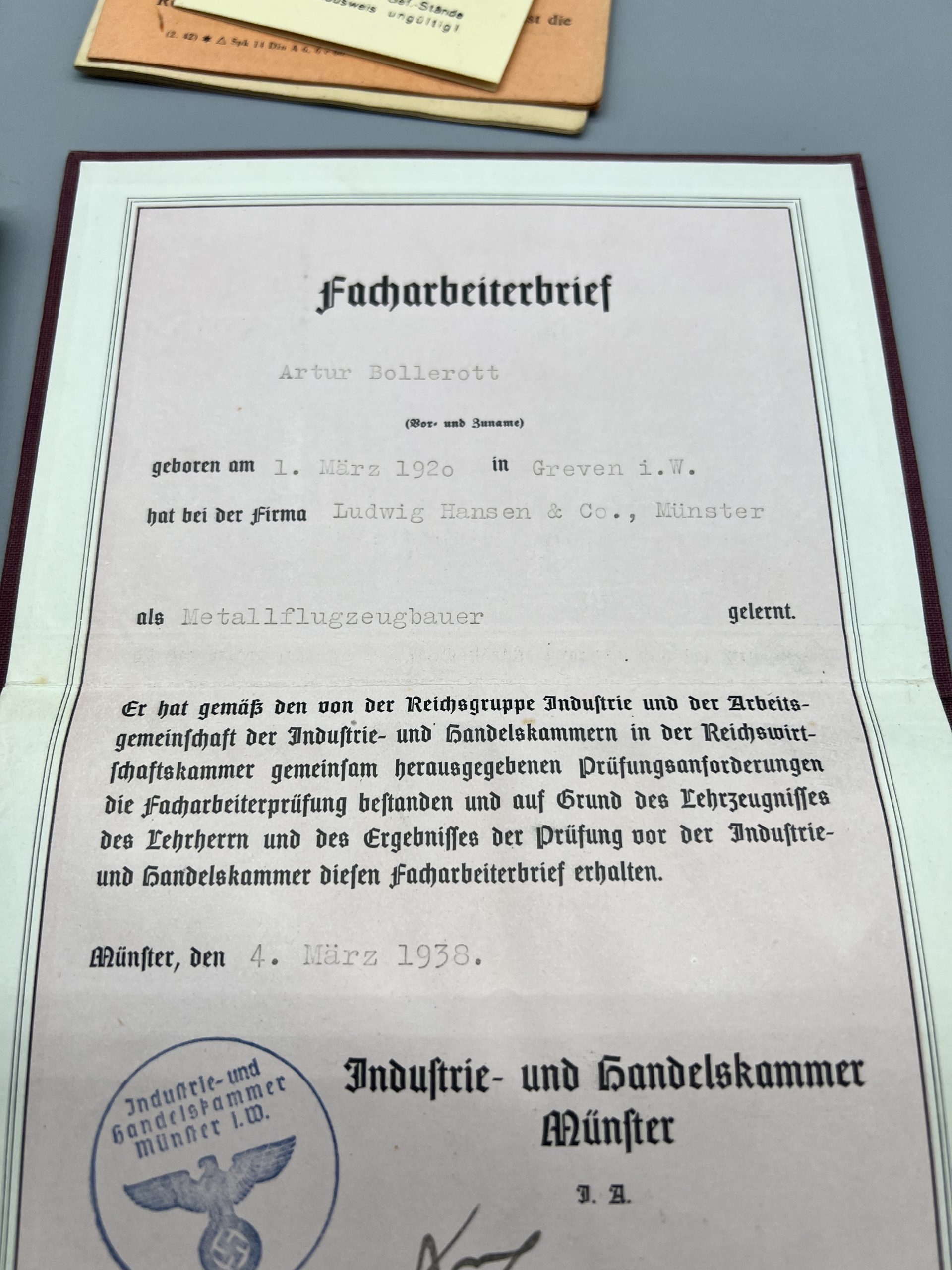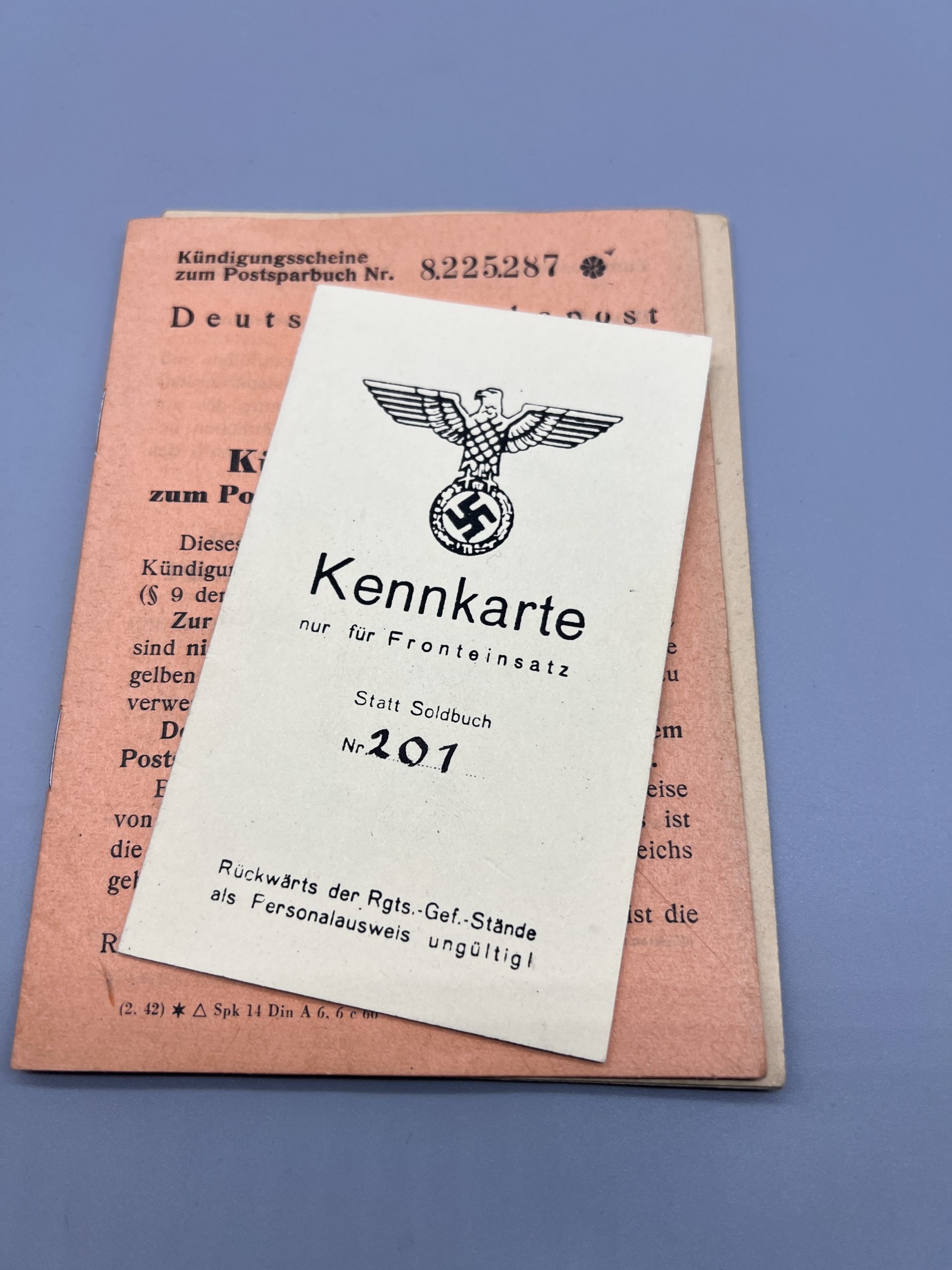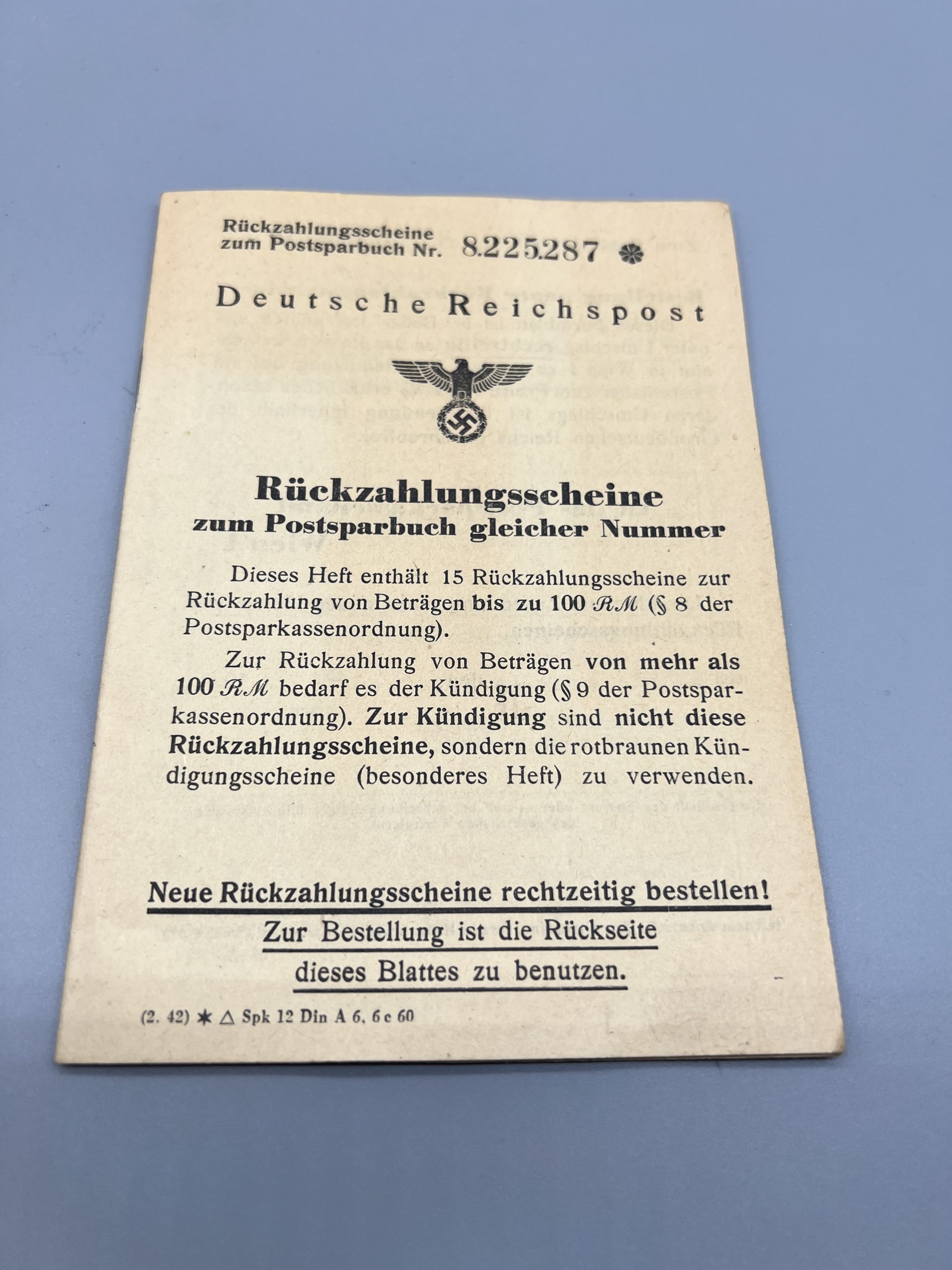Description
Nazi German Work Pass
The year 1935 brought more concerted attacks on the rights of German workers. These measures were condoned and, in some cases, initiated by the DAF.
From February, each German employee was required to keep a workbook, listing his or her skills and previous occupations. If a worker quit their job then the employer was entitled to retain their workbook, which made obtaining a new job almost impossible. From June 1935, Nazi-run agencies took over the management of work assignments, deciding who was employed where. Wages were set by employers in collaboration with DAF officials; workers could no longer bargain or negotiate for higher wages.
The most telling reform was the removal of limitations on working hours. By the start of World War II (1939), many Germans were working between 10-12 hours per day, six days a week.


